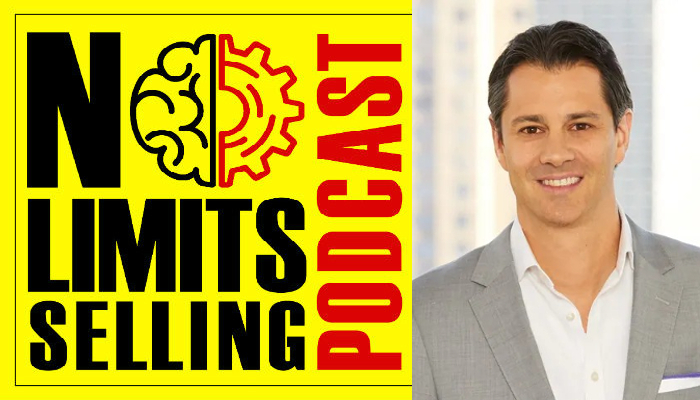7 Ways to Build an Effective Real Estate Team
On Episode 263 of The No Limits Selling Podcast, we have Brian Morgan, President at The Morgan Manhattan Team. Brian has been recognized as a top sales agent every year since 2010; most notably as Team of the Year for Sales companywide in 2013 and 2016, and a winner of the Diamond Circle, Silver Award, and President's Council in 2011-2017.
In 2009, Brian created the Morgan Manhattan Team, a team of dedicated and experienced agents. Brian actively supported the community and co-founded the non-profit organization, Kid Care. His charity's mission is to work with underprivileged and homeless children in the community to alleviate the stresses that impoverished children often face and give them every opportunity to thrive.
In this podcast, Brian shares with us 7 tips to build an effective real estate team.

Find Brian Morgan: LinkedIn
[EDITOR’S NOTE: This podcast, is sponsored by No Limits Selling. It is a fun, fast-paced podcast that delivers hard-fought business advice that you can implement today to improve your sales and performance]
Check Out Our New Mindset Boosters App: Link
Find us on Social Media:
LinkedIn | Facebook community | Instagram
Like what do you listen to? Subscribe to our podcast!
Ready to become fearless? We can help you become fearless in 60 days so you accomplish more in your career Schedule A 15 min Call with Umar
Summary
Introduction and Background of Brian Morgan
The podcast begins with an introduction to Brian Morgan, a renowned figure in the field of sales and marketing, and an effective real estate team builder. Brian shares his background, including his early years, education, and the experiences that led him to his current position. He discusses his journey, highlighting the challenges he faced and how he overcame them. Brian's story is one of resilience and determination, demonstrating his commitment to his career and his passion for sales and marketing.
Brian's Approach to Sales and Marketing
In the next section, Brian delves into his unique approach to build an effective real estate team. He emphasizes the importance of understanding customer needs and building strong relationships. Brian believes that successful sales and marketing strategies are customer-centric, focusing on providing value and solving problems. He shares insights into his methods, including the use of data analytics, market research, and innovative marketing techniques.
Challenges in the Sales and Marketing Industry
Brian then discusses the challenges faced by professionals in the sales and marketing industry. He talks about the rapidly changing market trends, the impact of technology, and the increasing competition in the industry. To build effective real estate teams, Brian shares his strategies for navigating challenges, including staying updated with the latest industry trends, continuous learning, and adapting to new technologies.
Brian's Success Stories and Achievements
The podcast also highlights some of Brian's success stories on creating effective real estate teams and achievements in his career. These include successful marketing campaigns, significant sales growth, and his contributions to the companies he has worked with. Brian's achievements underscore his expertise and effectiveness in his field.
Advice for Aspiring Sales and Marketing Professionals
Toward the end of the podcast, Brian offers advice for aspiring sales and marketing professionals. He encourages them to be persistent, to continuously learn and improve, and to always put the customer first. Brian's advice on building effective real estate teams is grounded in his own experiences and successes, providing valuable guidance for those looking to build a career in sales and marketing.
Conclusion
The podcast concludes with Brian sharing his future plans and aspirations. He expresses his excitement for the future of the sales and marketing industry, and his intention to continue contributing to its growth and development. The podcast ends on a positive note, reflecting Brian's optimism and passion for his work.
Faq
Who is Brian Morgan in the sales and marketing industry?
What is Brian Morgan's approach to sales and marketing?
What challenges does Brian Morgan identify in the sales and marketing industry?
Can you share some of Brian Morgan's success stories and achievements?
What advice does Brian Morgan offer for aspiring sales and marketing professionals?
What are Brian Morgan's future plans and aspirations in the sales and marketing industry?
Don’t miss this opportunity to transform your real estate career with one-on-one coaching. As an experienced real estate coach, I, Umar Hameed, am dedicated to helping you unlock your full potential and achieve your real estate goals. To learn more about who am I and my clients ↓
If you’re ready to take the next step, book an appointment with me today and begin your journey toward success in the real estate industry.
